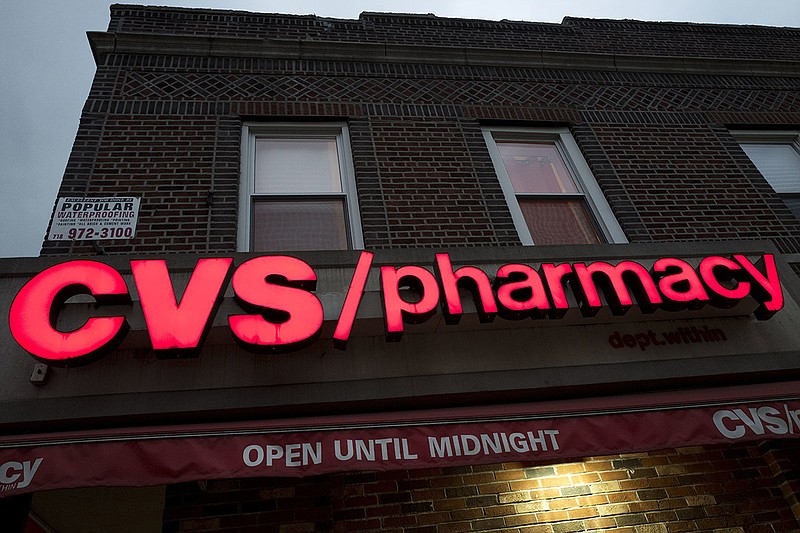CVS Health detailed a better-than-expected second quarter Wednesday and then reassured investors that it doesn't depend heavily on much-criticized prescription drug rebates that regulators may eliminate.
Shares of the drugstore chain and pharmacy benefit manager climbed after CEO Larry Merlo told analysts that rebates from drugmakers will amount to only about 3 percent of the company's adjusted earnings this year.
Mizuho Securities USA analyst Ann Hynes said she thought they contributed about 14 percent, and Wall Street probably had an even higher estimate. She called the CVS disclosure "a big deal for the stock," and she said in a research note that it shows that any potential changes should be manageable for the company.
CVS Health runs the nation's second-largest drugstore chain and processes more than a billion prescriptions a year as a pharmacy benefit manager.
These so-called prescription drug middlemen have taken heat in the debate over rising drug prices, especially over rebates they receive from drugmakers. Critics say those largely secretive agreements play a major role in keeping drug prices elevated, and regulators have talked about eliminating them.
CVS Health says it passes well over 90 percent of its rebates on to its customers, and Merlo added Wednesday that the idea that what it retains affects prescription drug prices is "entirely false."
In the second quarter, CVS Health actually lost $2.56 billion, due to a hefty charge from its long-term care business. But adjusted earnings, which don't count such one-time items, came in at $1.69 per share. Revenue rose 2 percent to about $46.7 billion. Both figures beat expectations.
Analysts predicted earnings of $1.61 per share on $46.32 billion in revenue, according to FactSet.
The company booked a $3.9 billion charge in the quarter tied to its long-term care business. It said Wednesday that it has struggled to grow that business after spending more than $10 billion a few years ago to buy Omnicare, which provides pharmacy services to nursing homes and other clients.
That charge and some costs tied to a pending $69 billion acquisition of the health insurer Aetna led to the quarterly loss.
Overall, though, the company had a good quarter, Edward Jones analyst John Boylan said in another research note. He added that the Omnicare charge was a surprise, but he was already expecting modest results from that business.
For 2018, the company now expects to earn between $6.98 and $7.08 per share this year, better than the per-share projection of between $6.87 and $7.08 that the company put out in May.
Regulators are still reviewing the Aetna deal, but CVS Health said it expected to close that transaction either late in the third quarter or early in the fourth.
Company executives have said they want to use the combination to move deeper into managing customer health and to expand the care CVS provides through all of its retail locations.
